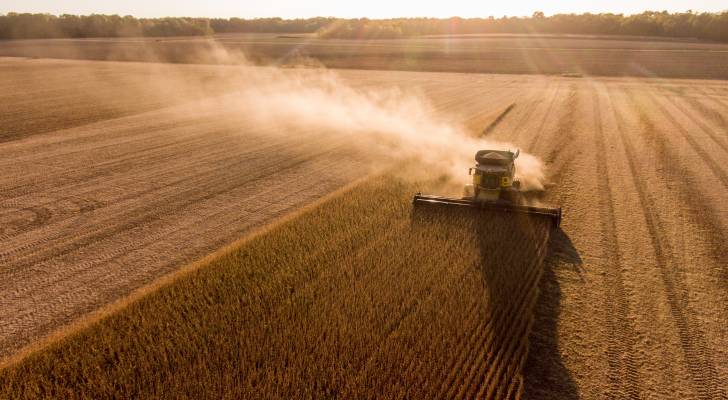The combines are rolling across the American Midwest, but instead of excitement, many farmers say this harvest feels more like a crisis.
Trade wars, rising costs, labor shortages and high interest rates have converged into what some growers call ‘farmageddon,’ a tidal wave of financial and emotional strain threatening one of this country’s most vital industries. And with markets closing and storage bins filling fast, they say time is running out.
“It just seems like things have stalled all summer long,” Brian Warpup told CNN recently [1], who grows corn and soybeans on 3,900 acres in northeastern Indiana. “With harvest here, patience may be running thin.”
At the center of the turmoil is China, the world’s top soybean buyer. In retaliation for President Donald Trump’s new round of tariffs, Beijing has largely stopped buying American soybeans this year, opting instead for supply from Brazil.
That’s a crushing blow. Soybeans alone brought in nearly $25 billion for American farmers last year, according to the Department of Agriculture. Without Chinese demand, crops are piling up in bins and elevators across the Midwest.
Warpup says he’s being forced to sell corn earlier than planned just to clear space for soybeans. Other growers face extra fees to store grain at elevators. Ryan Frieders, a corn and soybean farmer in Illinois, put it bluntly: “(It’s) like a tidal wave of problems coming toward Illinois.”
While incomes sink, expenses climb. Fertilizer, seeds and machinery are all more expensive than just a few years ago [2]. And with interest rates still elevated, financing costs are squeezing farmers’ already-thin margins.
The American Farm Bureau Federation reports farm bankruptcies jumped 55% in 2024 and are rising again this year [3]. University of Arkansas economist Ryan Loy says many farmers are “at the end of their rope, not able to meet their financial obligations.”
The stress isn’t only financial. CDC data shows farmers already face higher suicide rates than the general population, and farm leaders fear the current crisis could make that grim statistic worse [4].
